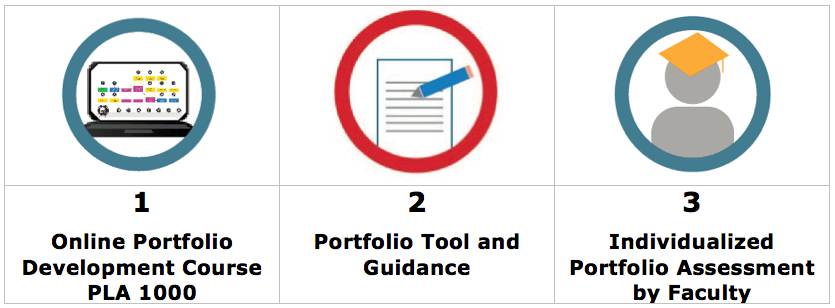Antioch University Online
Transfer Credit and Prior Learning Assessment
Antioch University has established a transfer credit policy consistent with current and best practices in higher education. The University recognizes that circumstances arise in life that might interrupt enrollment in school and/or that changes in educational and career direction might prompt a student to desire to transfer to another program or institution. The University believes learners should be able to build on their past educational experiences and has established processes to apply qualified learning experience to a student’s educational program at Antioch University.
Types of Eligible Transfer Credit
- Credits from institutions accredited by one of the six regional accrediting agencies recognized by the US Department. of Education
- Credits from institutions accredited by national accrediting bodies recognized by the Council for Higher Education Accreditation (CHEA) and/or the U.S. Department of Education
- Learning demonstrated through equivalency examinations (DSST [formerly DANTES], CLEP, AP, ACT, etc.)
- Credits on military transcripts – Joint Services Transcript or ACE Military Transcript Guide
- ACE credit transcripts
- Credits earned through concurrent registration at another accredited institution
- Portfolio assessment of prior experiential (non-transcripted) learning
Equivalency Examinations
CLEP: Developed by the College Board, the College-Level Exam Program (CLEP) offers 33 exams in five subject areas, covering material taught in courses generally taken in the first two years of college. By passing a CLEP exam, students can earn 3 or more college credits. For more information on testing sites and cost, visit the CLEP website.
DSST: DSST Get College Credit exams are college 38 subject exams that you can take to earn college credit for knowledge you acquired outside of a traditional classroom. For more information on testing sites and cost, visit the DSST website.
For complete details, please view Antioch University policy, 5.611 Transfer and Intra-University Credit Policy
Prior Experiential Learning
Antioch University maintains the belief that students should have the opportunity to apply for academic credit for relevant college-level knowledge and skills that have been derived from prior life experiences. Through Antioch University Online, students complete PLA 1000, in which you learn how to document and demonstrate that learning through the satisfactory development of a learning portfolio.
PLA 1000 and Portfolio Assessment
Earn College Credit for What You Know!
The knowledge you have gained outside the classroom is extremely valuable. At Antioch University, we have a process for turning this learning from professional experience into academic credit. You can save time and money on earning your degree and discover the importance of your life and job experience while doing so.
There are many types of learning that can be evaluated:
- Work experience and job skills
- Employer-sponsored training programs
- Military service
- Independent study
- Volunteer or community service
- Open-source courseware study
- Other training or skills

Antioch University partners with the Council for Adult & Experiential Learning (CAEL) to provide you with the guidance and structure needed to prepare learning portfolios that reflect the knowledge and expertise you have gained outside of the classroom. Antioch University offers an accelerated 3 semester-credit course, PLA 1000: Prior Learning Assessment Theory and Practice, to help you identify areas of learning you may want to have evaluated for college-level equivalency.
PLA 1000 is offered online, through our partnership, and can be bundled with your other courses at Antioch University, so that matriculated students can include PLA1000 in the term course load for both academic progress and financial aid purposes. CAEL faculty will assess your completed Portfolio and make recommendations for the college credits you should receive. The portfolio credits you earn may be directly applied to your bachelor’s degree.

Get Started on Prior Learning Assessment via Portfolio
To determine if you are a good candidate for prior learning assessment via portfolio, set up an appointment with your Academic Advisor or find an Admissions Counselor for your program of interest here.
